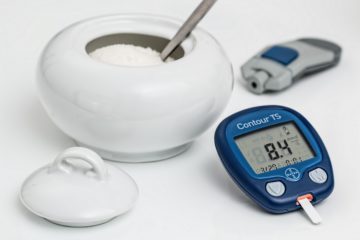Diabetes day and the link with Pancreatic Cancer
Diabetes is a condition which affects almost 3.7 million people in the UK. Diabetes can be a risk factor for pancreatic cancer or a symptom of the disease.
Today on World Diabetes Day, we look at what diabetes is, the link with pancreatic cancer and what you can do to help control diabetes and reduce your risk.
What is Diabetes?

Diabetes is when your body does not regulate its blood sugar levels properly. Blood sugar levels are regulated by insulin, a hormone, produced in the pancreas.
Insulin converts the glucose into energy, if your body cannot make enough insulin, or use its own effectively this is when you have diabetes.
Diabetes is a lifelong condition, categorised into two main types: Type 1 (insulin dependent) and Type 2 (non-insulin dependent).
Some symptoms include low energy, passing more urine than normal and feel extremely thirsty. Click here to find out more about the signs and symptoms of diabetes.
Click here to find out more about World Diabetes Day
What is Pancreatic Cancer?
Pancreatic cancer occurs when a cancerous tumour forms in the pancreas.
In the UK, almost 10,000 people are newly diagnosed with pancreatic cancer each year. The disease affects men and women with incidence rising from the age of 45. Surgery with chemotherapy is currently the only cure and there is currently no screening test for the disease.
Links between pancreatic cancer and diabetes
Diabetes can be a risk factor for pancreatic cancer or a symptom of the disease.
Diabetes as a symptom of pancreatic cancer
Diabetes is due to a deficiency in insulin, which is produced by the pancreas. A tumour can stop the pancreas producing enough insulin leading to an onset of diabetes in the early stages of pancreatic cancer.
Many pancreatic cancer patients are known to present with new-onset Type 2 diabetes or impaired glucose tolerance when they are first diagnosed. This can present up to 2 years prior to a diagnosis of pancreatic cancer and can be an early symptom.
The latest NICE guidelines (whom provide guidance to the NHS) informs healthcare professionals to consider pancreatic cancer for patients with new-onset diabetes with unexplained weight loss.
Dr Bennet, of the Westlands Medical Centre in Portchester, followed this advice after taking our e-learning module on pancreatic cancer. He searched the practice’s records for recently diagnosed type 2 diabetes patients who had a normal or low BMI when they were presented. This search produced 10 patients. 1 of these patients was found to have pancreatic cancer.
Diabetes as a risk factor of pancreatic cancer
There are a number of reports which suggest that diabetics have a higher chance of developing pancreatic cancer.
Type 2 diabetes is a changeable risk of pancreatic cancer. Reducing your body weight can help improve your body’s ability to use insulin effectively. This can help reduce your chance of having pancreatic cancer as well as type 2 diabetes, strokes and coronary heart disease.
Whilst we know that there is a link between pancreatic cancer and diabetes, there is still a wide range of research to be done to understand the connection between the two.
What may help control diabetes?
It is important to get advice relevant to your own circumstances as there are different types of diabetes. You may be referred to a Diabetes Specialist Nurse who will help you manage your diabetes, give help and advice on insulin injections and managing your diet.

If you have diabetes, it is important that your blood sugars are controlled. You can help maintain your blood sugar levels as close to normal as possible by maintaining a good balance between nourishing healthy diet, nutritional supplements, medications and physical activity.
However, it is important that you get the balance between healthy eating and maintaining your weight. If you are struggling to maintain your weight, you should not restrict your diet further to try and reduce your blood sugar levels. Ask your doctor, dietician or diabetes nurse for advice.
For more information of diabetes you can visit Diabetes UK.
